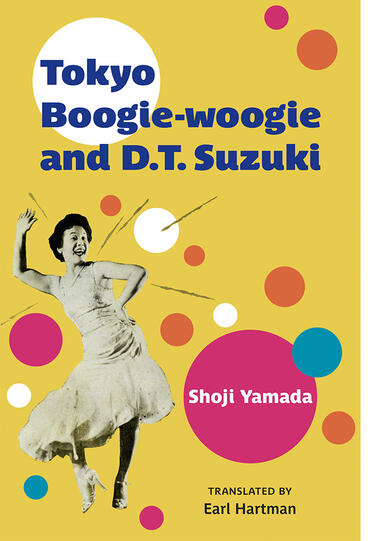Tokyo Boogie-woogie and D.T. Suzuki
A rare exploration into the unknown life of Alan Suzuki, the son of Daisetsu and the writer of "Tokyo Boogie Woogie"
Description
Tokyo Boogie-woogie and D.T. Suzuki seeks to understand the tensions between competing cultures, generations, and beliefs in Japan during the years following World War II, through the lens of one of its best-known figures and one of its most forgotten. Daisetsu Teitaro Suzuki (D.T. Suzuki) was a prolific scholar and translator of Buddhism, Zen, and Chinese and Japanese philosophy and religious history. In the postwar years, he was a central figure in the introduction of Buddhism to the United States and other English-language countries, frequently traveling and speaking to this end. His works helped define much of these interpretations of ‘Eastern Religion’ in English, as well as shape views of modern Japanese Buddhism.
Against this famous figure, however, is a largely unknown or forgotten shape: Suzuki Alan Masaru. Alan was D.T. Suzuki’s adopted son and, though he remained within his father’s shadow, is mostly known as the lyricist of the iconic pop hit “Tokyo Boogie-woogie.” Perhaps due to his frequent scandals and the fraught nature of the relationship, Alan remains unmentioned and unstudied by scholars and historians. Yet by exploring the nature of the relationship between these two, Shoji Yamada digs into the conflicting memories and experiences of these generations in Japan.
Shoji Yamada is Professor in the Research Department of the International Research Center for Japanese Studies.
Reviews
“Tokyo Boogie-woogie and D.T. Suzuki combines a biographical account of important Buddhist thinker Daisetz Suzuki, a fascinating yet universal story of a father-son relationship, and key developments in Zen’s introduction to America into a single, compelling narrative. With an accessible writing style, the book reintroduces Daisetz as a key figure in the history of Zen in the Western world and sheds new light on his life and family.”
- Hiromu Nagahara, Massachusetts Institute of Technology
—Hiromu Nagahara, Massachusetts Institute of Technology

